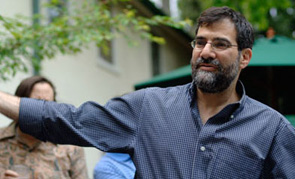Questions posed to me with a student in Germany doing a research project on MOOCs:
Q. Technology has certainly made information more accessible, and it’s amazing to see the kind of pedagogy offered through MOOCs such as ModPo become freely available. The only drawback I see is a lack of official accreditation potential, where it is surely deserved. I have a few questions on this matter.
Q. Do you have many examples of your students or those from other MOOCs finding success in employment, or developing careers of their own?
A. ModPo is not relevant to the whole question of finding a job. I hear from people that ModPo helped them understand themselves, gain confidence in their ability to write and respond to complex questions, etc., but those are beautifully indirect effects, not direct ones. The idea that MOOCs are supposed to help people find jobs is to my mind a very narrow way of understanding the value of teaching and learning. Jobs are important, to say the least, but I believe that often learning is separately important.
Q. Has there been a reduction in discrimination from employers since MOOCs began in 2012? That is to say, can individuals who develop skills on a par or above those of graduates realistically compete in labour markets?
A. I’m not sure what the question is, but it seems not at all relevant to what we do in ModPo, or why we created this free, open, non-credit online experience. I think you might be pointing to a general undervaluing of a person’s learning from an open online course. Certainly this is true, and certainly was to a great extent in 2012. But I would point to an overall undervaluing of learning in the fields of arts and humanities generally, regardless of whether it derives from face-to-face education or online. That to me is a major form of “discrimination,” to use your term.
Q. What do you think the future holds for these programs? Can there ever be a day where first-rate education becomes accessible to all? (I imagine that the inability or reduced ability to have feedback and in-person contact with academics is a difficult hurdle to overcome).
A. “First-rate”? Hmmm, the term begs many questions about the effectiveness of forms of teaching and learning. So far as open online courses are concerned: such an education already is available to all, although only here and there through massive open online courses that have as one of their main missions lowering barriers to entry (including cost). ModPo is free, open, non-credit, with a very low barrier to entry (you just have to have a working web browser on a computer or mobile device and an email address). People have said that the course, and the site, are “first-rate.” There is no limit on feedback and responsiveness in ModPo. Every question receives a response and almost every comment is part of an ongoing conversation. Many participants say that in ModPo they feel more of an individual learner than they did in a large lecture class at a university. The question is not whether such an experience in an open online course is possible. It’s whether teachers will have incentives to create such a thing.





 Al Filreis is Kelly Professor, Faculty Director of the Kelly Writers House, Director of the Center
for Programs in Contemporary Writing, Co-Director of PennSound, and Publisher of Jacket2—all at the University of Pennsylvania. Among his books are Secretaries of the Moon,
Wallace Stevens & the Actual World, Modernism from Left to Right, and Counter-Revolution of the Word: The Conservative Attack on Modern Poetry, 1945-60. His new book is
Al Filreis is Kelly Professor, Faculty Director of the Kelly Writers House, Director of the Center
for Programs in Contemporary Writing, Co-Director of PennSound, and Publisher of Jacket2—all at the University of Pennsylvania. Among his books are Secretaries of the Moon,
Wallace Stevens & the Actual World, Modernism from Left to Right, and Counter-Revolution of the Word: The Conservative Attack on Modern Poetry, 1945-60. His new book is  Founder/Faculty Director,
Founder/Faculty Director, 